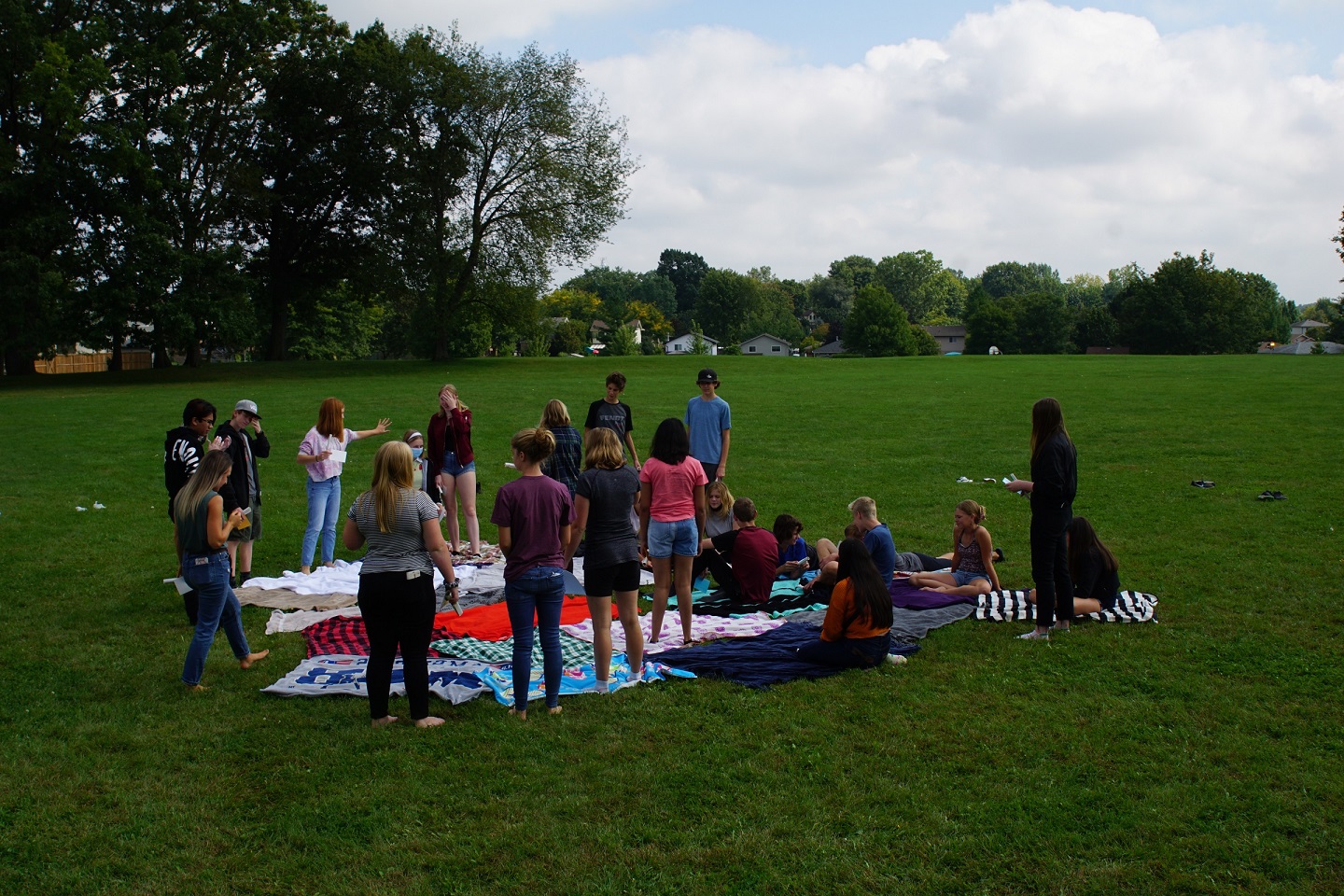Reflections from LCH Principal, Tim Bentum
As we start another new school year, there is much to be excited about. As a school community, we are dealing with fewer COVID restrictions, which has opened up many opportunities for our students and staff that have not been available for the past few years. Also, as we look around our province, we see COVID cases decreasing, rather than increasing, even with students returning to school. As Christians we know that we always have much to be thankful for and, within the context of the pandemic, we see even more clearly that we can be thankful for a God who is in control. Not only are we thankful, we praise God that He has got this all in His hands.
We also look around our world and recognize that everything is not as it should be. We see on a daily basis that we are still living in the ‘already, but not yet’ phase of the Biblical story. The past two years have been filled with racial unrest, environmental disasters, scandals involving many prominent Christian leaders, not to mention widespread division and relational breakdown due to COVID-19. On top of all of these challenges that we have faced, as Canadians we also came to realize that our history as a nation is forever stained with the news of mass child graves found near many government-sanctioned residential schools.
At the time of this writing the bodies of over 6,500 Indigenous children are believed to have been found at or near historical sites of residential schools, which is a mind-boggling number. As Christians, we must ask ourselves, what, if anything, can we do to help bring healing and restoration to this terrible situation? To put it in the words of Theodore Plantinga, former professor at Redeemer University, “how can we, as Christians, redeem the past?”

Grade 10 History students participating in the Blanket Exercise
Fortunately, Christ-followers are called to live out of and within the grand narrative of Scripture. Our purpose and our meaning is directly tied to God’s plan for salvation and redemption, which is still being worked out even as we speak. Because we serve a risen Saviour and because we are called to be co-creators in His new creation, we are also called to do what we can to heal the past and to work towards a brighter future in His Kingdom.
It has now become very clear that our Indigenous brothers and sisters in Canada have endured horrendous tragedies as a part of our national history, in reality, often at the hands of Christ-followers. This is a heavy weight to bear and a tremendously broken witness for Christ in our broken world. As a first step in the redemption process, we can take steps to learn more about our national history. Although we have much to be proud about and thankful for as Canadians, we also have much to be ashamed of and to learn from moving forward. As a starting point, we would encourage our school community to visit the National Centre for Truth and Reconciliation website, where many resources, stories and next steps are available.
On September 30 we will be taking some time as a school to recognize the first National Day for Truth and Reconciliation in Canada. One of our history classes will be sharing some of what they have been learning about the Truth and Reconciliation Commission among other things related to Indigenous peoples here in Canada. One practical step that they took in class was a ‘Blanket Exercise’, which served to show the students how they can be a practical part of the reconciliation process (pictured above). As we begin to engage in this process as Canadians, and specifically as Christians here in Canada, we start with a posture of humility, learning and open-mindedness. We recognize that we have much to learn about our history so that we can begin to be a part of the redemptive process of reconciliation. We acknowledge that in so many ways, the journey has just begun.
In the end, we ask that God will lead us and guide us and give us the courage and humility to listen and to love all those who are hurting, in the name and model of Jesus Christ.


